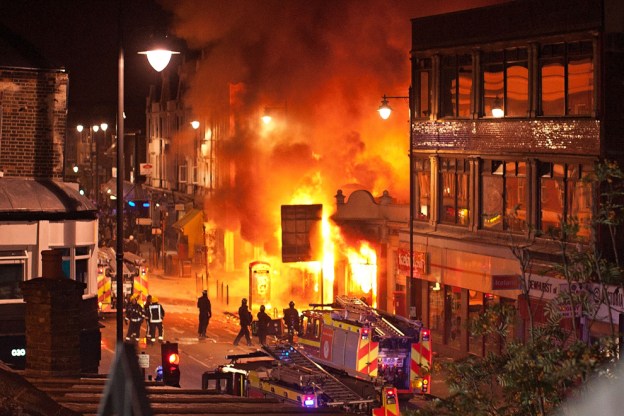
The UK government will not ban suspected criminals from using social networks during times of emergency and civil unrest, reports the Guardian. The idea was first proposed by British Prime Minister David Cameron in the aftermath of the riots that wreaked havoc on London and other cities in the UK earlier this month. Twitter, Facebook and BlackBerry Messenger were reportedly used by rioters to help orchestrate their rampages.
The decision not to ban citizens suspected of planning riots, looting and other criminal activity follows a meeting between UK Home Secretary, Theresa May, and representatives from Twitter, Facebook and Research In Motion, the company that makes BlackBerry.
“The discussions looked at how law enforcement and the networks can build on the existing relationships and co-operation to prevent the networks being used for criminal behaviour. The government did not seek any additional powers to close down social media networks,” the Home Office said in a statement.
Mr. Cameron’s proposal was instantly met with opposition from free speech advocates, and brought ridicule from Iran, a country long criticized by leaders in the West for its authoritarian tactics and crackdowns one civil liberties.
Despite this, those in charge of maintaining peace and order say that social networks have a responsibility when their services are used to carry out criminal activity.
“I can understand why some people would feel uneasy,” said Gordon Scobbie, a senior British police official who attended the meeting, in an interview with The New York Times. “But if they’re allowing criminal activity — and this was high-end criminality, people lost their lives in these riots — I struggle to see how that can just go on.”
He added: “We have a duty to protect people, and that’s always balanced with human rights, online or offline. It’s no different now.”
Twitter, Facebook and BlackBerry all released statements, saying that they are operating within UK law.


